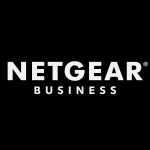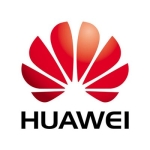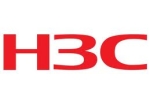What is our primary use case?
Ubiquiti UniFi Switches does everything I need it to do. I've been pretty happy with it. It's a wired switch, that's what it does.
How has it helped my organization?
It performs better, has better throughput than my previous switch and it's also a managed switch, whereas my previous one was just a dumb switch.
This gives me more flexibility in how I configure it.
What is most valuable?
Because it's a managed switch, I have the ability to set controls and configure traffic priorities, VLAN ports, etc.
It doesn't really have anything that sets it apart from any other professional grade switch. It essentially does what they all do.
What needs improvement?
This falls under the category of a nice-to-have feature. It's not much of anything.
It would be nice if there was a way to label all of the ports on it so that I could include information about where the various connections go.
I have a wired switch in my server room that runs cabling throughout the facility, and it would be nice to be able to look at a port and immediately know the location and load on that port, and what's running on it.
For how long have I used the solution?
I have worked with Ubiquiti UniFi Switches for two years.
I have an EdgeSwitch 24.
What do I think about the stability of the solution?
In terms of stability, I like it pretty well, though one of the ports on it went dead about two or three weeks ago.
I am a little concerned about that, but it's not uncommon for a switch to have a bad port. I am keeping an eye on it to see if it continues to degrade or if I have only lost that one port. Apart from that, I am pretty pleased with it.
What do I think about the scalability of the solution?
It's a switch. You buy it based on how many ports you require. This one has 24 ports, and if I wanted to expand it, I would have to get a different model with more ports.
There are two SFP ports available for inserting and connecting to a different type of driver.
I'm not using them right now because I don't need them, but they are there in case I do.
We are a consulting firm. We do remote support for various customers. It's basically the in-house network that connects all of my workstations to each other and also gives us all access to the internet.
It's pretty stable right now. We don't have any immediate expansion plans. We hope to in the future, but for now, it's doing everything we need it to.
How are customer service and support?
Technical support has changed over the years.
I haven't needed any technical support with this switch. Although, I do have a lot of their other equipment, such as wifi access points and routers, and the like.
I don't want to say that they are worse than anyone else, but they are certainly not any better.
Which solution did I use previously and why did I switch?
I have almost exclusively worked with Ubiquiti products.
I have their EdgeSwitch product line.
As IT support consultants, we work for a wide range of companies, some of which are quite large. I am sure they have a wide range of products available.
They are networking hardware, which I usually don't get involved in because I work on the software side.
How was the initial setup?
It is not overly complicated. It all depends on which features you intend to use. If you don't want to change anything, you can run the thing pretty much plug and play out of the box. Aside from that, it all depends on how fancy you want to get with it.
One of the reasons I chose it was because it is flexible. Because you have to configure some things on it, it's obviously more difficult to set up than a simple unmanaged plug and place switch, but it's not overly difficult in my opinion.
This one that I am running now probably took me less than two hours to get it up and running and doing what I needed it to do.
What about the implementation team?
The deployment was completed entirely in-house.
We are not a large company. I do all of the maintenance and deployment myself.
What was our ROI?
We are not big enough to care about that kind of thing. I just need equipment that will help our business here, and it has done so so far.
What's my experience with pricing, setup cost, and licensing?
There are no licensing fees; you just purchase it and run it.
Occasionally there are upgrades to the firmware that you have to check for, download, and install. But, you basically buy it, set it up, and run it.
I suppose if I needed a support contract with them or something, there might be some annual fees or something like that, but I don't need that level of support.
The only other operating costs would be the power required to run it.
Pricing is somewhere in the middle. It is not as expensive as some of the other name brands, such as Cisco and other similar products. But nowadays, you pay as much for the name as you do for anything else. But I would say that it's in the middle.
What other advice do I have?
Ubiquiti may be about to or has already discontinued its Edge product line. They have upgraded their switches and routers to replace them. I don't have any of those, so I'm not familiar with them. I am not really sure, and I could be wrong about it discontinuing. I just saw some comments on some of the forums about this possibly happening.
It is somewhat dependent on the class. When compared to what I call home consumers, it is far superior because it has more capabilities. However, if I were to compare it to other commercial grades, such as Cisco and some of the others, I would rate Ubiquiti UniFi Switches a seven out of ten.
Which deployment model are you using for this solution?
On-premises
Disclosure: My company does not have a business relationship with this vendor other than being a customer.



















